FAQ: Does a Physical Address Improve Your SEO and EAT?
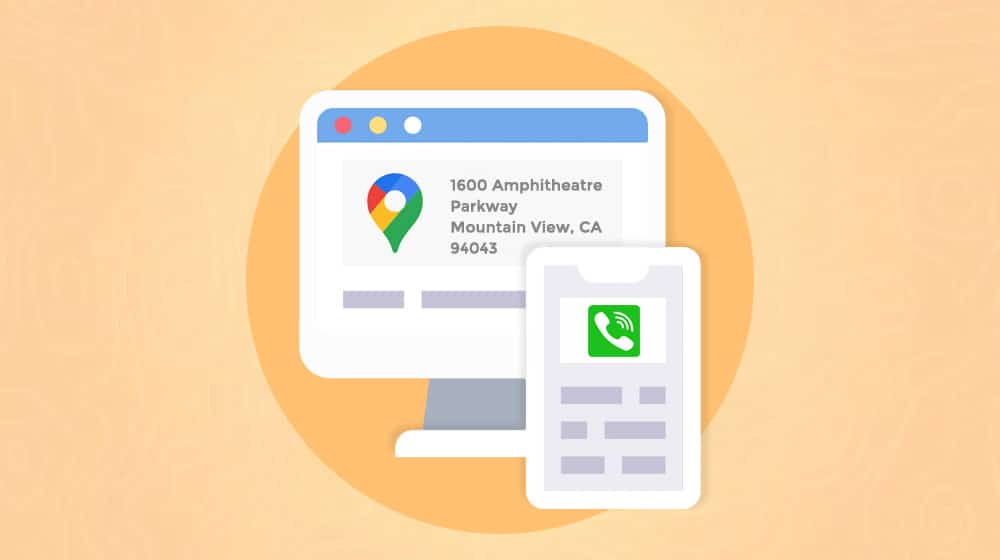
Thousands of details are considered when calculating search rankings, many of which are site-level elements of your "profile" that Google maintains about you and your business.
If your rankings are lower than you'd like them to be, it's helpful to know that there are always things that you can do to improve your online presence. Some are obvious and common knowledge, and others are lesser-discussed strategies.
Your physical address, phone number, and EAT are in that second category. Most people don't really discuss your phone and address's impact on a business, but I've seen first-hand how vital these things can be. They are a component of both nationwide and local rankings that impacts the trust that people and search engines place in your website, and they reinforce your position as a real business and help your local SEO. Search engines also cross-reference that information with signals (like citations / local listings) from other websites, which gives them more confidence that your business is, in fact, at that address.
I'm focusing on a ground-level detail that can make a difference for some business owners - if you can use it correctly.
What Is EAT?
EAT, often stylized E-A-T, is Google's recent push over the last few years to identify, categorize, and rank sites, businesses, and people based on their trustworthiness.
It stands for Expertise, Authoritativeness, and Trustworthiness.
Technically, EAT has been part of Google's public messaging since 2018, but in truth, it's been around informally for a lot longer than that.
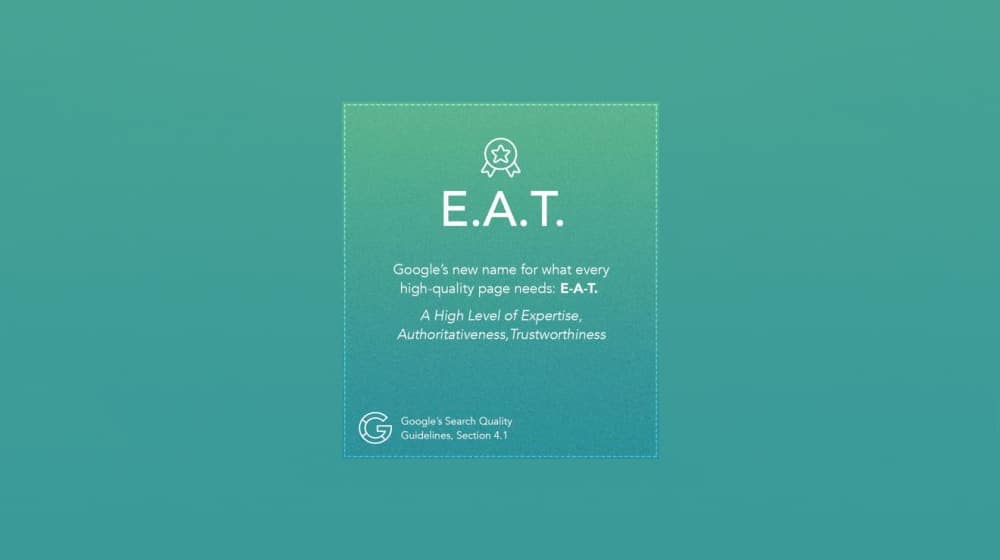
For pretty much as long as there has been the internet, people have been posting websites with varying levels of information on them. It's up to the people browsing those websites to determine how much they should trust those websites.
Who is this person to be telling me this, and should I believe what they have to say?
Unfortunately, the larger the internet gets, and the more complex the general understanding of a subject becomes, the harder it is to tell fact from fiction. This phenomenon is even worse now that there are natural language A.I.s like GPT-4 out there, causing problems by writing very authoritative-sounding but completely incorrect content.
EAT is, formally, a way that Google uses its algorithm to look at various signs that a website has and identify how trustworthy that site is. I'll dig into it deeper in a bit, but consider the things you might look for:
- Is there a name and a photo for the author?
- Do you recognize the person writing the content?
- Does the author or the brand have a reputation they're putting on the line?
- Do they have accolades relevant to the topic, and what experience does the writer have on this topic?
- How long has this website been active, and how long have they been in business?
- Is there a consensus on this topic, and does this article say something vastly different than most other leading experts?
An individual's perceptions can be wildly off-base (which is how misinformation spreads), but when taken as a bigger picture across the whole of the internet, it's easier for a company like Google to make more focused rules for what constitutes trustworthiness, distill it down into specific signals, and look for those signals.
What Is NAP?
NAP is Name, Address, and Phone Number. I'm using the abbreviation "NAP" for this post, even though it's primarily just about the address because it's all part of the same signal. Google doesn't draw much distinction between a business that posts its address and a business that posts its phone number with the address, or if they do, it's such a minor signal that it's overshadowed by virtually anything else.
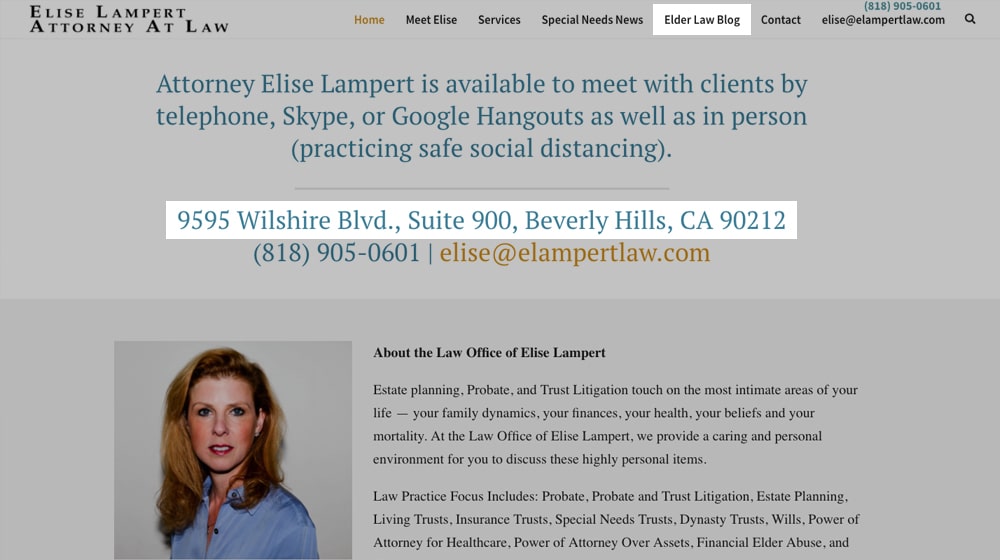
The question here is whether or not including your NAP on your site is part of EAT, part of search engine optimization in general, or neither.
Is NAP Part of EAT?
This question is a more complicated question than you might imagine.
- NAP is a tangible factor. It either exists in full, exists in part, or doesn't exist, and it's either accurate or inaccurate. The important part here is that it's a specific piece of information that Google's indexation bots can look for and can set a flag for your site profile whether or not you have it. It's one of the hundreds of different tangible metrics Google can measure about a site.
- EAT, on the other hand, isn't. You don't have an "EAT Score" or anything, and Google doesn't have any public way to measure or report your site's or your business's EAT rating. Instead, it comes down largely to a personal impression of a site.
How do we know this?
Google tells us indirectly.
What Does Google's Algorithm Say?
Did you know that Google's algorithm is largely public? It's just not public in the way you might think. See, one of the greatest tricks Google has ever pulled is convincing the general public that their algorithm is all software, machine learning, A.I., or just some complex network of spreadsheets and data. While it definitely includes all of that, there's also a significant human element.
Google's algorithm is powered in part by a legion of freelance searchers working as "search evaluators" and raters. They tried to keep this under wraps for years, but the more people are involved in something like this, the greater the chances that an NDA will be broken. It went from rumor to confirmation to the documentation being leaked to Google publicly saying, "Fine, yes, we do this, here's the document." Today, you can find Google's Guidelines for raters here.
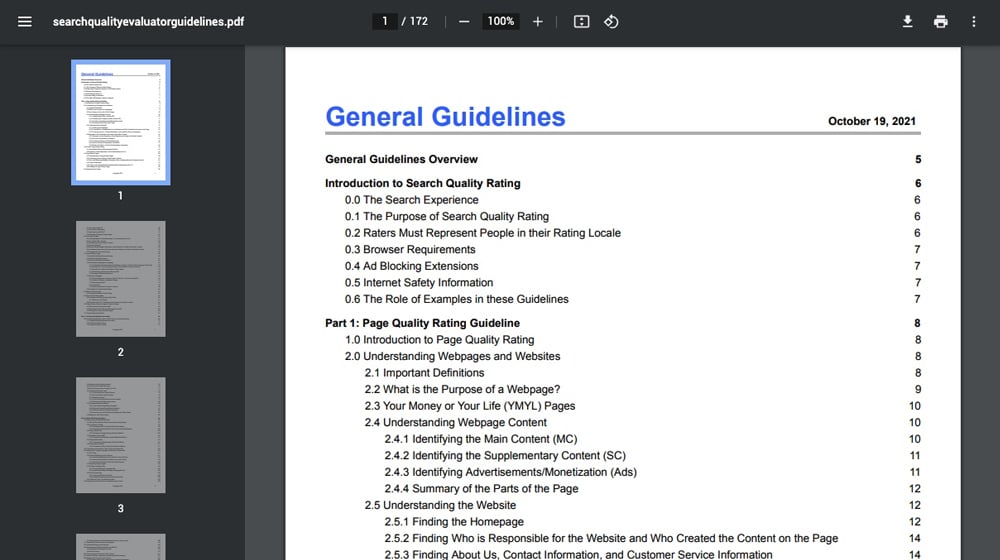
The Google Search Quality Evaluator Guidelines is a 176-and-growing-page-long document full of all of the guidelines given to these contract workers on how to judge and evaluate a website across virtually every axis Google cares about. It's a fascinating read, and there's a ton any marketer can learn from it, but we're interested in a few specific sections today.
Under the E-E-A-T (they add "Experience" to the EAT definition internally), Google has this to say:
"Experience, Expertise, Authoritativeness and Trust (E-E-A-T) are all important considerations in P.Q. rating. The most important member at the center of the E-E-A-T family is Trust.
Experience: Consider the extent to which the content creator has the necessary first-hand or life experience for the topic. Many types of pages are trustworthy and achieve their purpose well when created by people with a wealth of personal experience. For example, which would you trust: a product review from someone who has personally used the product or a "review" by someone who has not?
Expertise: Consider the extent to which the content creator has the necessary knowledge or skill for the topic. Different topics require different levels and types of expertise to be trustworthy. For example, which would you trust: home electrical rewiring advice from a skilled electrician or from an antique homes enthusiast who has no knowledge of electrical wiring?
Authoritativeness: Consider the extent to which the content creator or the website is known as a go-to source for the topic. While most topics do not have one official, Authoritative website or content creator, when they do, that website or content creator is often among the most reliable and trustworthy sources. For example, a local business profile page on social media may be the authoritative and trusted source for what is on sale now. The official government page for getting a passport is the unique, official, and authoritative source for passport renewal."
All of this shows you how Google trains its contractors to recognize the authority and trustworthiness of a website. None of it specifically mentions NAP, though, and you'll find that most of the guidelines don't. You find specific passages like this, though:
"2.5.3 Finding About Us, Contact Information, and Customer Service Information
Many websites are interested in communicating with their users. There are many reasons that users might have for contacting a website, from reporting problems such as broken pages, to asking for content removal. Many websites offer multiple ways for users to contact the website: email addresses, phone numbers, physical addresses, web contact forms, etc. Sometimes, this contact information is even organized by department and provides the names of individuals to contact.
The types and amount of contact information needed depend on the type of website. Contact information and customer service information are extremely important for websites that handle money, such as stores, banks, credit card companies, etc. Users need a way to ask questions or get help when a problem occurs.
[…]
Some kinds of websites need fewer details and a smaller amount of contact information for their purpose. For example, humor websites may not need the level of detailed contact information we would expect from online banking websites."
Further down, "unsatisfying amounts of contact information" is a factor under what constitutes a low trust or low authority site. In other words, a website that makes it harder to contact them if there's an issue is more likely to have a lower EAT ranking with search evaluators, which make up a big part of their overall rankings.
"Pages on YMYL topics and other pages that require a high level of user trust should receive a Low rating if there is an unsatisfying amount of information about who is responsible for the website or who created the content."
What Is the Traditional Advice for Marketers?
None of what I've posted above makes for a clear answer. That's pretty much expected with anything Google-focused these days, though.
They're a very complex machine, and it's very likely a black box even to most Google engineers. I doubt there are more than a few dozen or a few hundred people who fully understand how Google's algorithm works internally.
That's fine. You don't need to understand how the aerodynamics of flight work or how a flight controller computer's software functions under the hood to fly a plane. You just need to know how to operate it.
NAP is effectively part of EAT for certain kinds of websites. Any business with a physical location can benefit from NAP.
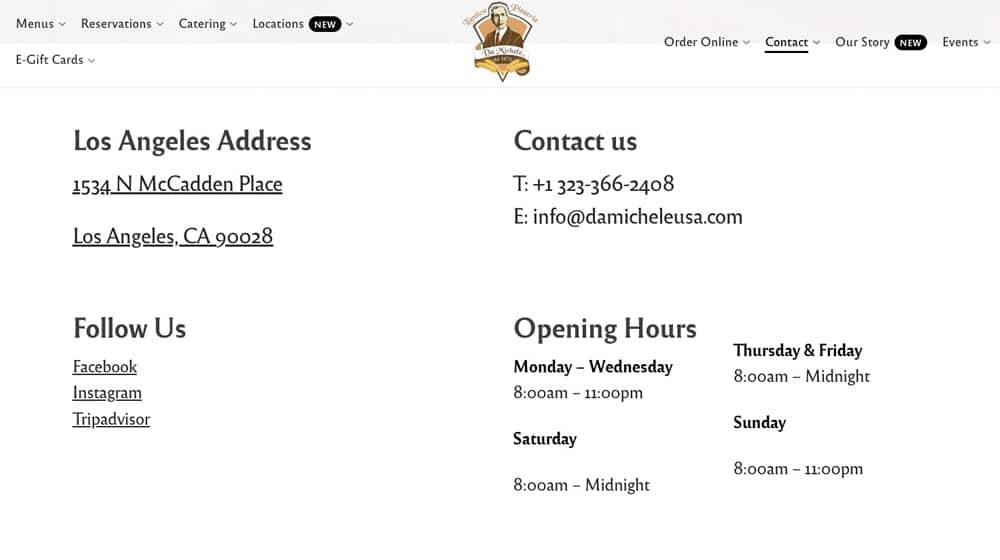
A business without a business location can still post the NAP for their headquarters (like I could post mine), but it's less likely to be relevant. I don't have a service area business, and I work with clients digitally and all over the world, so a physical address isn't as important to my business.
On the other hand, a retail outlet, doctor's office, restaurant, or local business would all have a greater need to show off their on-site address, so the address is more valuable. In addition, search engines may not rank that website well if it does not mention its phone number or address. Your area code in your phone number and your physical address are two important hints about where your business is and where you should rank for local searches.
Is EAT a Ranking Factor?
Yes, but not directly.
Again, there's no one "EAT" rank or numerical assignment you can have for it. It's an impression based on many different factors that are more codifiable, though. As such, EAT itself isn't a ranking factor, but the things that go into EAT are.
From what I've seen and experienced, listing your business address on your website is helpful and is a small ranking factor for some businesses. It gives users and search engines confidence that your business exists and that they know how to find you at your location.
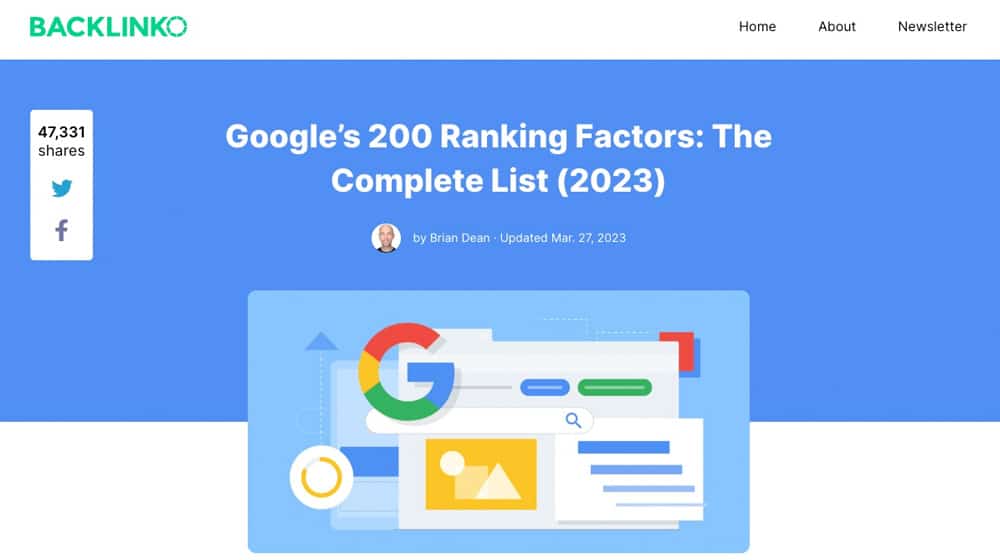
"Why don't you have your address listed," you ask. A physical address is a ranking signal I must miss out on, as I'm not about to list my home address on my website. I work remotely, as do all of my employees, and I don't have a storefront. I don't meet clients there, and I don't want it in any business directories.
What Should You Do With NAP?
If you have it, and it wouldn't be detrimental to make it public, post it.
Still, it's only really essential to local businesses that rely on people visiting their address. If you don't have a business NAP (for example, if you run your business out of a home office or if your registered business address is a P.O. Box or the equivalent), it won't benefit you to post it.
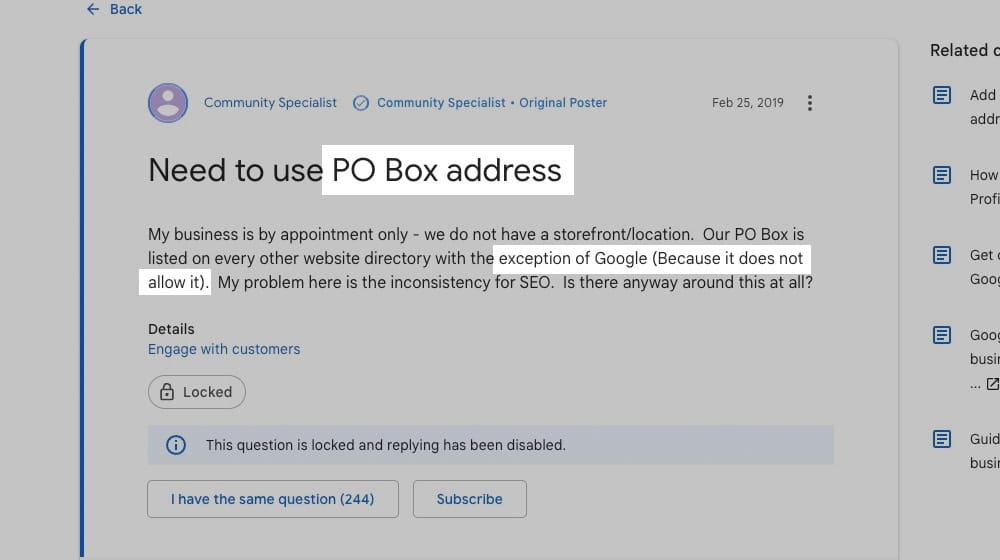
If it's your home address, it might even be a liability. Your home may show up with your business name on Google Maps and Google Local and you could get some visitors from people who found you online. Posting a P.O. box might have the opposite effect, as Google has been cracking down on these for a long time on Google My Business listings.
How Else Can You Improve EAT?
EAT is affected by many minor details that all come together to showcase more trust, authority, and expertise than your competitors.

Here are just a handful of ways you can improve your site's EAT beyond just adding your NAP if it's relevant.
- Cite your sources. Google likes when authoritative sources cite other authoritative sources, and it's helpful to know when the information you're using to draw conclusions comes from first-party information, third-party studies, unrelated supposition, conspiracy theory boards, random blog comments, or what.
- Stick to what you know. If a plumber's blog suddenly branches out into cooking, people are going to be skeptical. It's very difficult to be a general-interest site, and the successful ones are all either massive, hundred-year-old publications or are more focused on providing the service of publication, like Medium.
- Put your name and reputation on the line. Content published by Site Admin is less inherently trustworthy than content published by a real person. Plus, this helps build personal branding, which will help you if you decide to guest post on another website or build another business later.
- Build "About Us" and "Contact Us" pages. The more and better information you have there, the more likely it is that people will trust you. Would you trust a company that you weren't able to contact? Probably not. Users feel the same way, and Google knows this about users, and it's a part of their algorithm. Other examples include terms of service, privacy policy, and other standard pages you'd expect to see on a website.
- Be willing to admit mistakes and change your content. You may have made predictions or assumptions that are incorrect. Edit and acknowledge them in your content, and update it, but don't try to memory-hole it. Comments can be a great way to bring light to outdated or incorrect content. Users can tell you about this information, and responding to those users and updating your content can go a long way.
- Grow your brand and maintain a presence on other websites. It's one thing to say you're an expert on your site, and it's another to have thousands of different websites also confirming that you're an expert. Podcasts, webinars, guest posts, quotes, and collaborations are excellent signals confirming your authority and reputation to both users and search engines.
As for your physical address, include it if it's worthwhile, but if you're not in a situation where a letter from a customer or someone showing up at your doorstep would be beneficial, leave it off your website. It generally won't hurt you not to have it. If you have a physical office or headquarters, listing your address and phone number could give both users and search engines more trust in your company, which is a ranking factor now.
It's up to you to decide if it's something that is important to you. There are many ways to convey expertise, authority, and trust, and this is just one of them.










Comments